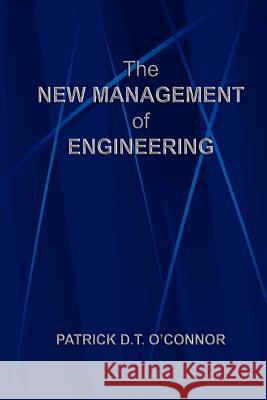The New Management of Engineering » książka
The New Management of Engineering
ISBN-13: 9781411621497 / Angielski / Miękka / 2005 / 292 str.
The first book that explains why managing engineering is more difficult, more demanding and more important than managing any other human activity in modern society. It explains how, by adhering to the principles taught by Peter F. Drucker in his landmark book "The Practice of Management," managers can exploit the full potentials of their peoples' talents and of changing technologies, methods and markets. It brings together the whole range of methods used by the world's best performing engineering companies, including research, design, development, testing, production and maintenance. The philosophy and methods for achieving excellence in quality and reliability are fully described. The book offers fresh insights into a wide range of current engineering management issues, including education, MBA training, quality and safety standards and the roles of institutions, cultures and governments in engineering.
The first book that explains why managing engineering is more difficult, more demanding and more important than managing any other human activity in modern society. It explains how, by adhering to the principles taught by Peter F. Drucker in his landmark book "The Practice of Management", managers can exploit the full potentials of their peoples talents and of changing technologies, methods and markets. It brings together the whole range of methods used by the worlds best performing engineering companies, including research, design, development, testing, production and maintenance. The philosophy and methods for achieving excellence in quality and reliability are fully described. The book offers fresh insights into a wide range of current engineering management issues, including education, MBA training, quality and safety standards and the roles of institutions, cultures and governments in engineering.











